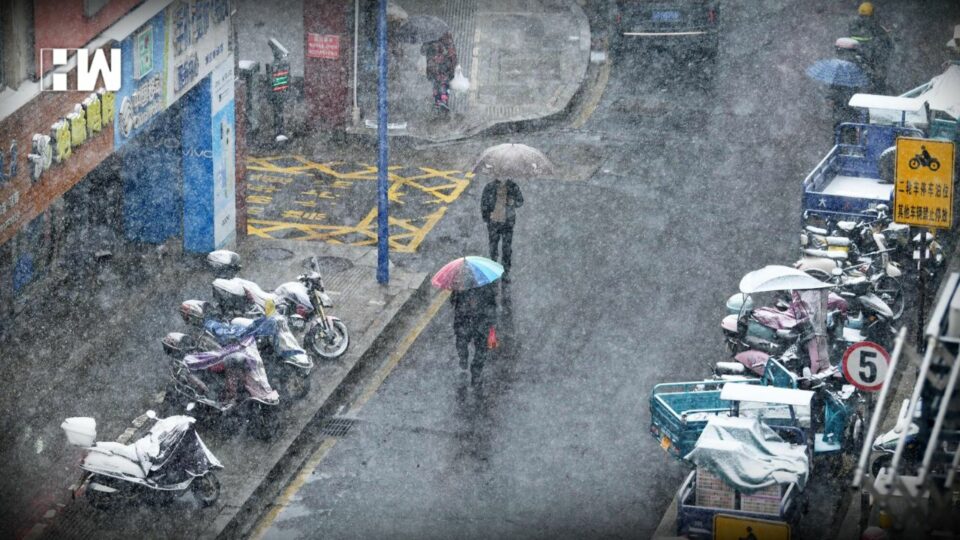A Russian liquefied natural gas ship at a Chinese terminal. China’s purchases of gas from Russia rose 42 per cent last year, according to New York Times.
Beijing: The shortage of natural gas and the cold wave in China are making the winter chillier and unbearable for the residents, The New York Times reported.
The acute shortage of natural gas has worked as fuel to the Chinese who are already angry with the government because of the pandemic. These reactions spilt over into caustic complaints on social media. On social media platforms, a video goes viral in China where the temperature was seen rising in an apartment building in a different northern province, Shanxi, with the windows plastered with bright red posters of the sort often seen at Lunar New Year — except that these posters say “cold.”
In China already hundreds of millions of people were caught in Covid since President Xi Jinping abandoned his “zero Covid” policy in early December. Before the relaxation of the policy, people were frustrated by their strict restrictions which started after the pandemic emerged in China, citizens demanded costly precautions like mass testing — measures that exhausted the budgets of local governments, reported New York Times.
Many towns and cities now lack the money they need even to pay their own employees, much less to maintain adequate supplies of gas for homes.
Also Read:Meet Egypt President Abdel Fattah El-Sisi, Chief Guest For Republic Day 2023
The crunch, experts said, has exposed systemic weaknesses in China’s energy regulations and infrastructure, while showing the reach of the global market turmoil provoked last year by Russia’s invasion of Ukraine.
Russia has long been a major supplier of natural gas to China and many regions, particularly Europe. When Russia halted exports to Europe last summer, nations bid up world prices as they stockpiled supplies from elsewhere. A surprisingly warm winter has since helped push gas prices lower in Europe, but the bitter cold is pushing them even higher in China.
A Russian liquefied natural gas ship at a Chinese terminal. China’s purchases of gas from Russia rose 42 per cent last year, according to New York Times.
At the same time, China’s provincial and municipal governments have reduced customary subsidies for natural gas consumption that used to keep a lid on heating bills. The national government has responded by telling local governments to provide heat, without giving them money to pay for it. As a result, gas is effectively being rationed, with households receiving the minimum needed for cooking food but very little for heat.
“It’s a perfect winter storm for Xi,” said Willy Lam, a longtime analyst of Chinese politics who is a senior fellow at the Jamestown Foundation. “Nothing seems to be working, partly because nobody seems to have much cash.”
This is the third crisis in just five years for President. His government abruptly banned coal-fired boilers across large areas of northern China in 2017 in favour of gas ones. It was a quick fix for air pollution, but residents soon found there was not enough gas for all the new boilers, as per the report in New York Times.]
Although, the government has taken notice of the gas shortages but they couldn’t change their fate.
“Some localities and enterprises have not implemented measures to ensure the supply and price of energy for people’s livelihood,” Lian Weiliang, vice chairman of the National Development and Reform Commission, China’s top economic planning agency, said at a news conference on Jan. 13.
He added that the national government would hold local officials responsible for supplying homes, but did not indicate that Beijing would provide any money to help them do so. China will also build more natural gas storage sites, he said, to try to avoid similar problems in the future, New York Times reported.
(Except for the headline, this story has not been edited by HW News staff and is published from a syndicated feed.)
As an independent media platform, we do not take advertisements from governments and corporate houses. It is you, our readers, who have supported us on our journey to do honest and unbiased journalism. Please contribute, so that we can continue to do the same in future.

